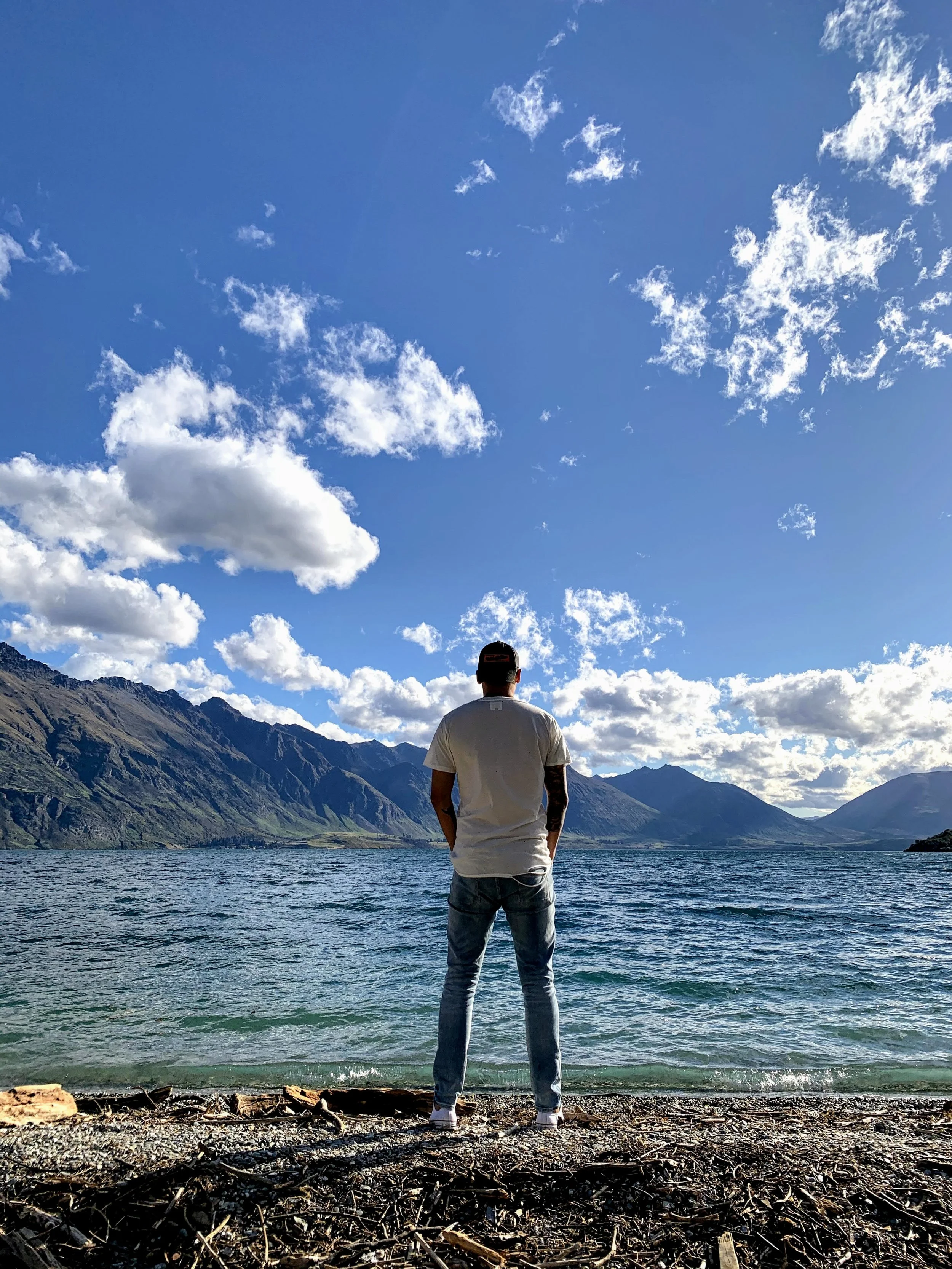6 Things That Helped Me Through the First 6 Weeks After Loss
When Lani passed, my world shifted.
It wasn’t just the loss of my wife; it was the loss of our future, our rhythm, our daily rituals.
In the silence that followed, I felt the weight of grief, but I also felt the responsibility to honour her, and myself, by choosing a different path than the one most people expect.
To be honest, I wasn’t sure how I was supposed to react.
Grief isn’t something we’re taught to navigate - especially as men.
The media often paints it one way: you fall into deep depression, you isolate, you drink, maybe even spiral into something darker.
I think of After Life by Ricky Gervais - and while I deeply respect what he created and the response it received, I couldn't help but wonder... could it look different?
I didn't want to disappear into despair.
That doesn’t mean I didn’t feel the pain, I feel it every day, but I wanted to stay present with it, not be consumed by it.
I knew I couldn’t control every emotion, but I could control the things that feed those emotions.
Because when you eat like crap, you sleep poorly.
When you sleep poorly, you feel low.
When you feel low, you don’t take care of yourself.
And then you might reach for a drink.
And that spiral? That wasn’t the path I wanted. Nor the one Lani would have wanted for me.
So I set out to rebuild, one conscious decision at a time.
Here are six things I did in the first six weeks that helped me stay grounded, present, and strong.
1. I Surrounded Myself With People
I didn’t isolate. I spent time with family and friends — not because I needed fixing, but because their presence helped me stay connected to the world around me. Even just sitting in silence or sharing stories helped me feel less alone.
2. I Avoided Alcohol and Junk Food
Grief can tempt you to numb out - with food, drink, distractions.
It was even something that Lani’s hospice nurse recommended we do, to eat what we want.
But I knew that numbing would only delay the pain. Avoiding alcohol and eating clean gave me a sense of control. It became an anchor. I could make choices that protected my mental and emotional health.
3. I Let the Emotions In
I cried. Every day. And I still do.
But I didn’t run from those feelings or bury them. I let the sadness come, and then let it go. Feeling pain is part of being human - and avoiding it only makes it heavier. I chose to feel, not to fold.
4. I Walked Every Morning
My two dogs didn’t let me skip this one — but those morning walks became sacred.
They marked the start of each day with movement and light. Simple, but powerful.
I could have easily stayed in bed, feeling sorry for myself. But I knew that just getting up and experiencing nature would be calming. Healing. It gave me a rhythm and a reason.
Every day for six weeks - since Lani passed - the sun shone on me each morning. Unheard of in Manchester, UK.
I took it as a sign. I felt her with me in those quiet moments, as if the world was letting me know I wasn’t alone.
5. I Trained and Ate Well
I trained 4–5 times a week, and fuelled myself with real food.
For me, a carnivore-based diet made things simple — minimal thinking, maximum nourishment. It gave me structure. A rhythm. Something solid to stand on.
Even on the hardest days, training and eating well gave me a sense of accomplishment. A reminder that I’m still here. I’m still showing up.
Lani loved pushing herself in the gym — it was one of her greatest joys. So now, I do it not just for me, but for her too. Every rep, every meal, is an act of honouring her.
6. I Lived in a Way That Would Make Her Proud
Every decision, every small habit, every act of discipline - I did it with Lani in mind.
I didn’t want to just survive her death. I wanted to honour her life.
She lived with positivity and strength, and I’m trying to carry that forward every day.
Grief is different for all of us.
But we deserve to know that we have choices in how we respond.
You can fall apart — or you can fall into routine, movement, connection, purpose.
None of this takes the pain away.
But it keeps you moving forward with it, rather than sinking beneath it.
If you’re navigating loss right now, try one of these steps.
Build from there.
Rebuilding isn’t about pretending everything is okay.
It’s about refusing to let grief steal the life you still have.
— Chris Spring
The Rebuild Lab
